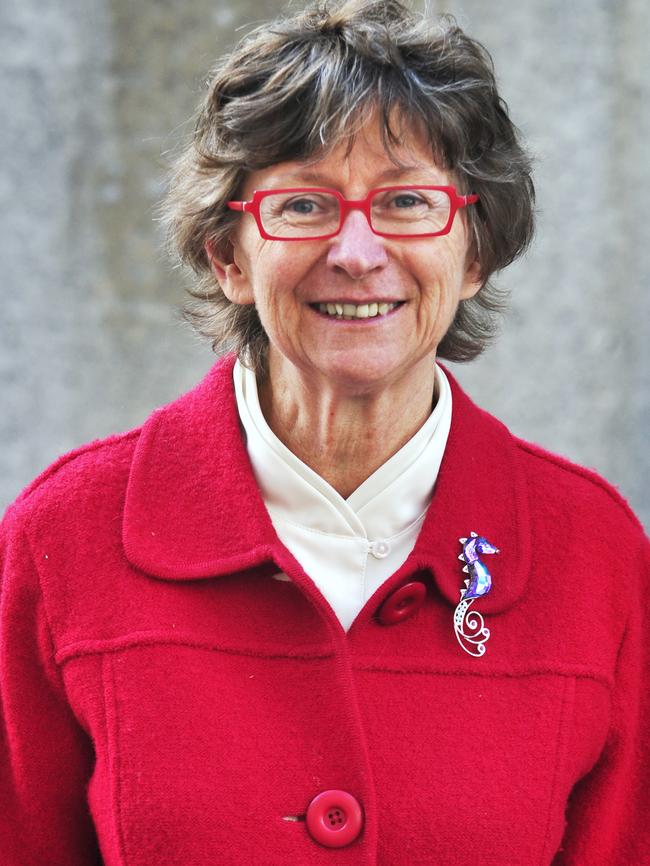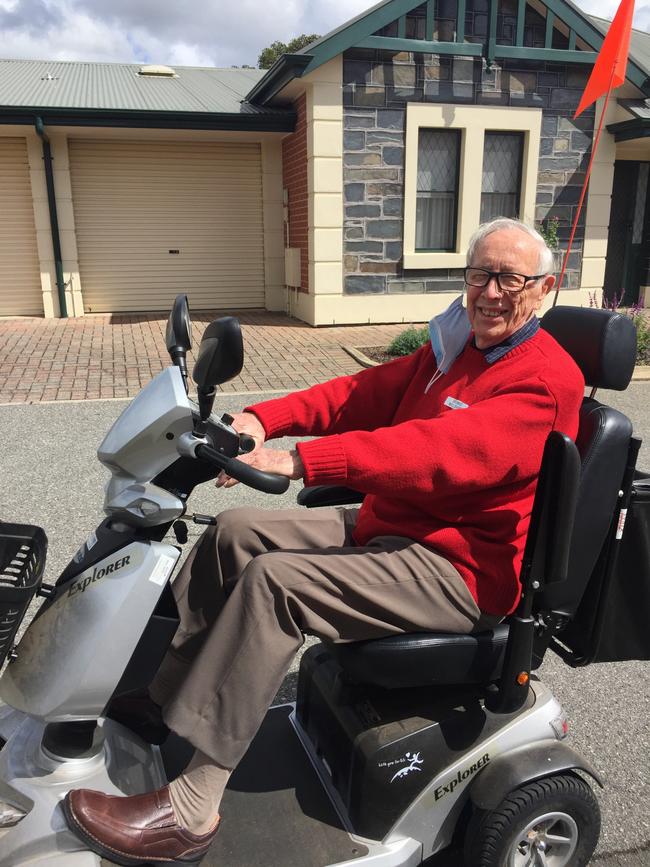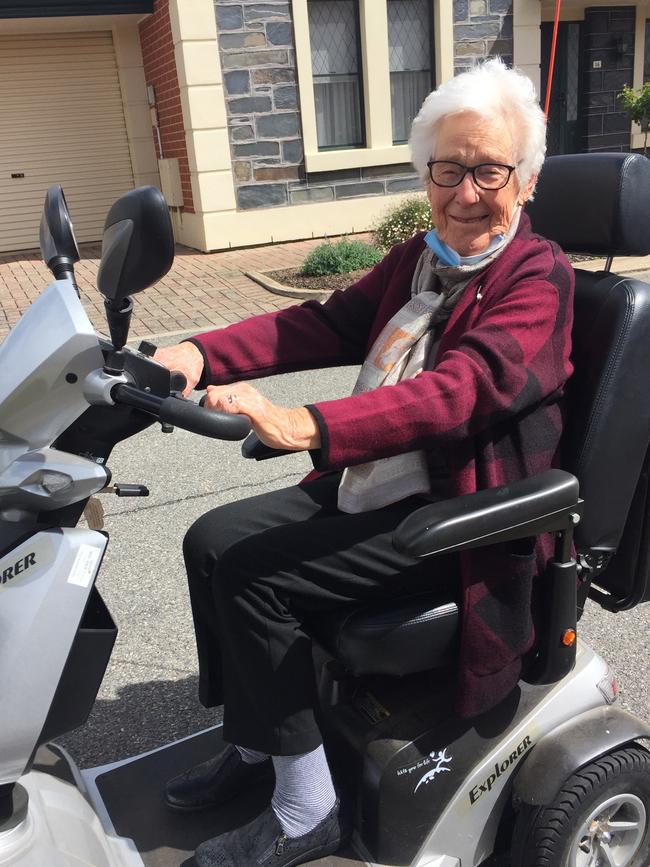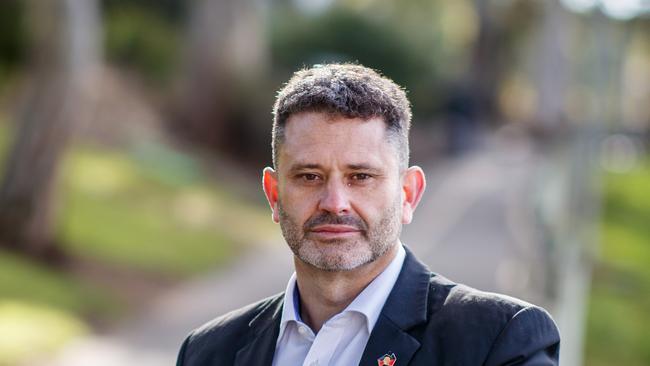Attorney-General of SA trying to bring forward laws for voluntary assisted dying
Advocates say South Australians have waited long enough for voluntary assisted dying in SA, after a tragic murder-suicide in Glynde.
SA News
Don't miss out on the headlines from SA News. Followed categories will be added to My News.
Voluntary euthanasia advocates are calling on the South Australian government to bring forward legislation accessibility for assisted dying after a tragic murder-suicide at Glynde.
Voluntary Assisted Dying SA president Frances Coombe said South Australians have waited long enough, and Voluntary Assisted Dying laws which passed parliament in June 2021 should be accessible by October.
“Certainly it does need to be brought forward, it is an urgent issue, South Australians have been waiting since 1995, there’s been 16 bills to try and get voluntary assisted dying through the parliament,” Ms Coombe said.
“People have been suffering all that time and they’re still suffering.
“For a January commencement, people are going to be suffering over Christmas when really it’s quite possible for an early commencement in October or November this year.”
South Australia became the fourth state to legalise voluntary assisted dying, with laws expected to be effective from January 2023.

It comes after Dennis and Barbara Willshire were found dead inside their Glynde home within a retirement village by staff on Wednesday morning.
Major Crime Detectives attended the scene to investigate and understand Dennis killed his wife before killing himself.
Mrs Willshire is understood to have been battling poor health.
The cause of death is still being investigated and while authorities reported a smell of gas, it was not believed to have contributed.
Friends told how the previously active Mrs Willshire had spoken of ongoing health problems that had left her feeling depressed and debilitated in recent months.
They told how she had taken a “turn for the worst” last Thursday and needed oxygen. “She did not look like her normal cheerful self,” one said.
Ms Coombe, who is also in the VAD implementation taskforce in SA, said the tragedy highlighted the need for it.
“Without VAD, people are either forced to suffer until the bitter end, or they’re forced to suffer in situations like we saw yesterday. And that’s a huge tragedy and a cruelty,” she said.


Former SANFL footballer Peter Johnston echoed the calls to speed up the VAD accessibility.
Mr Johnston, who is now based in Melbourne, watched his mother die over 10 days in a semiconscious state while pleading with doctors and family to end her life.
Mrs Johnston, from Glenelg, died aged 89 at an aged care facility in Adelaide after enduring five months of advanced-stage cancer.
“The sooner the better, these people go through this very indignant experience and it’s horrible,” Mr Johnston said.
“It’s just sensible, the sooner you can implement it the better, it takes stress away from the families, it takes stress away from the person, it’s just common sense.”
Attorney-General Kyam Maher said he was “doing all in his power” to escalate the implementation of the laws.
“If there’s any way that can be brought forward and have everything that needs to be in place safely in place we will do that,” Mr Maher told ABC Radio Adelaide.
He said training required in health settings including the delivery of substances by pharmacists, and IT systems to make the process lawful is why there is a delay.
“We can’t compromise on the safety of the scheme, that would undermine people’s confidence, but we are doing everything we can to bring it forward,” he said.

The new laws have strict eligibility guidelines, and would only be accessible to people suffering serious illness with a short life expectancy.
Everything you need to know about SA’s voluntary assisted dying laws:
When did the laws pass parliament?
The Voluntary Assisted Dying Bill passed the House of Assembly on Thursday, June 24, 2021.
Why won’t they come into effect until 2023?
Attorney-General Kyam Maher said the process is complex, and health staff require extensive training to ensure the safe delivery of voluntary euthanasia.
Who can use the scheme?
The SA laws require a person to be diagnosed by two different medical practitioners, one being a specialist in the area the person is suffering a chronic illness.
The patient must have an estimated life expectancy of six months or less to be eligible.
They must also be suffering chronic or unbearable pain, according to the doctors.
Can you use voluntary euthanasia if you have dementia?
Neurodegenerative disorder patients are eligible for the scheme, but you must be of sound mind which rules out many dementia patients.
A medical power of attorney cannot nominate someone for VAD.
“You have to have the mental capacity to understand the nature of what you’re doing, so anything that a person suffers from that robs them of their mental capacity and their ability to understand the effect of what they’re doing would disqualify someone from being part of voluntary assisted dying,” Mr Maher said.
“It’s always hard when legislators have laws that draw boundaries, but that is necessary to do what we do to introduce the scheme.”




